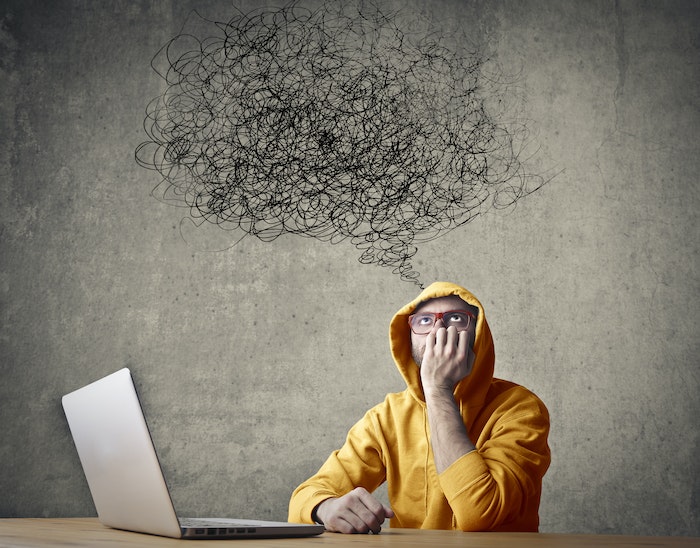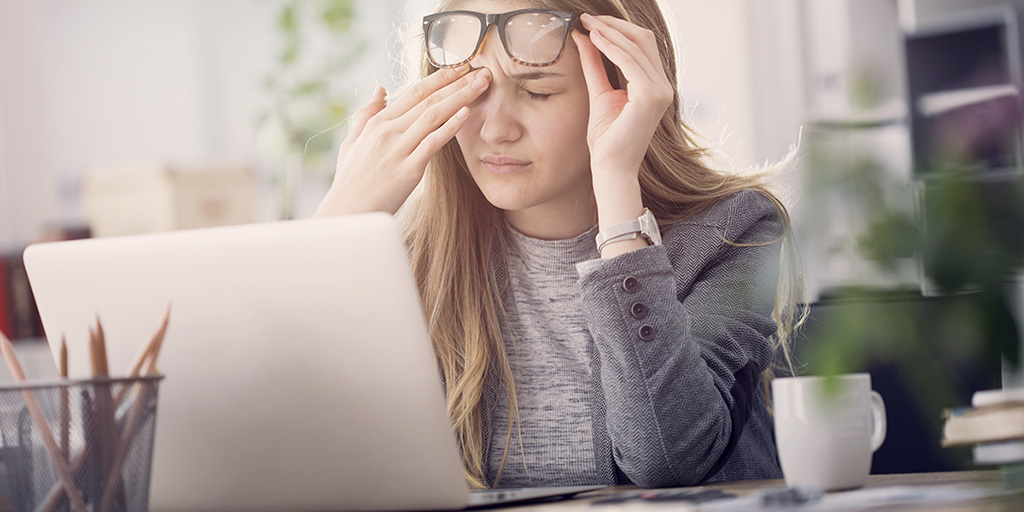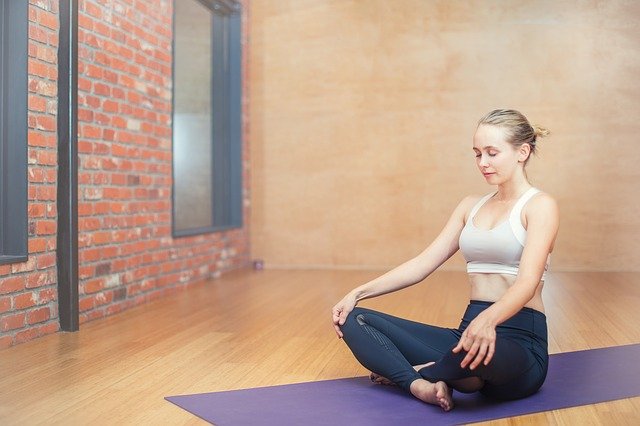Anxiety is one of the most common mental health issues in the United States, with over 40 million adults affected. For those who are struggling with anxiety, it can be difficult to know where to turn for help. This comprehensive guide will provide you with all the information you need to start coping with your anxiety. We’ll cover everything from the signs and symptoms of anxiety to the different treatment options available. So whether you’re just starting to experience anxiety or you’ve been struggling with it for years, this guide has something for you.
Contents
What Is Anxiety?
 Anxiety is a normal emotion that we all experience at some point in our lives. It’s the feeling of worry, nervousness, or fear that comes before something stressful happens, like taking a test or going on a first date.
Anxiety is a normal emotion that we all experience at some point in our lives. It’s the feeling of worry, nervousness, or fear that comes before something stressful happens, like taking a test or going on a first date.
For some people, anxiety can be more than just an occasional feeling. It can be constant and overwhelming, and it may even interfere with their daily life. This is when it becomes a problem.
There are different types of anxiety disorders, each with its symptoms. But there are some common signs of anxiety, such as:
- Feeling restless or on edge
- Having trouble sleeping
- experiencing fatigue easily
- Difficulty concentrating
- Irritability
There are also many causes of anxiety. It could be genetic, meaning it runs in your family. Anxiety could also be the result of a traumatic event or something that’s happening in your life right now. Sometimes there may be no clear reason why you’re feeling anxious.
Anxiety may have many impacts on your life. It can affect your relationships, your work, and your ability to enjoy activities that you used to love. But it’s important to remember that anxiety is a treatable condition. There are many things you can do to manage your anxiety and live a happy, healthy life. Treating anxiety can be a long process, but it’s worth it to get your life back.
If you think you may be suffering from anxiety, the first step is to talk to your doctor. They can help you figure out if your symptoms are due to anxiety or another condition. If it is anxiety, they can work with you to create a treatment plan. There are many different ways to treat anxiety, and there is no one-size-fits-all solution. But with the right treatment, you can manage your anxiety and live a full life.
What Does ” Coping With Anxiety” Means?
 Coping with anxiety means different things for different people. For some, it might mean managing their anxiety so that it doesn’t interfere with work or school. For others, it might mean learning how to control their anxious thoughts and emotions. And for others still, it might mean seeking professional help to address their anxiety.
Coping with anxiety means different things for different people. For some, it might mean managing their anxiety so that it doesn’t interfere with work or school. For others, it might mean learning how to control their anxious thoughts and emotions. And for others still, it might mean seeking professional help to address their anxiety.
No matter what your definition of “coping with anxiety” is, there are a few key things that you can do to manage your anxiety and improve your overall well-being.
Coping with anxiety may have some benefits. Also, there are many different techniques people can use to cope with anxiety. Some people may find that one method works better for them than another. It is important to experiment with different techniques and find the ones that work best for you.
One of the most important things you can do when coping with anxiety is to learn as much as you can about your condition. The more you know about anxiety, the better equipped you will be to manage it. Many excellent books and websites provide information about anxiety disorders and their treatment.
Another key part of coping with anxiety is learning how to relax. Relaxation techniques such as deep breathing, mindfulness meditation, and progressive muscle relaxation can help reduce stress and ease anxiety symptoms.
Different Ways For Coping With Anxiety

There are many different ways that people can cope with anxiety. Some people may need medication to help them control their anxiety, while others may find that therapy or relaxation techniques work better for them. Here are some different coping methods that you may want to try:
Do Exercises
One of the main ways people can cope with anxiety is by exercising. Exercise releases endorphins, which have mood-boosting effects. One of the main benefits of exercise is that it can help to reduce stress and anxiety. There are many exercising options available, so it is important to find an activity that you enjoy. Some of the exercises are running, jogging, yoga, and swimming. An important thing to remember is that you should start slowly and gradually increase the intensity of your workouts as you become more comfortable.
Talk to a therapist
Therapy can be an excellent way to cope with anxiety. A therapist can help you understand your anxiety and develop coping mechanisms to deal with it. Therapy can also teach you how to manage stress and identify unhealthy thought patterns. If you are interested in therapy, you can ask your doctor for a referral or look for a therapist online. There are many different types of therapy, so it is important to find a therapist that you feel comfortable with.
Join a support group
Support groups provide an excellent opportunity to connect with others who are coping with anxiety. In a support group, you can share your experiences and learn from others who understand what you are going through. Support groups can be found online or in person. To find a support group near you, you can search online or ask your doctor for recommendations.
Use relaxation techniques
Relaxation techniques such as deep breathing, mindfulness meditation, and progressive muscle relaxation can help reduce stress and ease anxiety symptoms. These techniques work by helping you focus on the present moment and release tension from your body. It is important to find a relaxation technique that works for you and practice it regularly. Some relaxation t techniques are aromatherapy, massage therapy, and acupuncture.
Get enough sleep
Another important part of coping with anxiety is getting enough sleep. Sleep plays a vital role in overall health and well-being. It can also help to reduce stress and anxiety levels. To get the most out of your sleep, it is important to practice good sleep hygiene. This means creating a relaxing bedtime routine and avoiding caffeine and electronics before bed. You should also aim to get seven to eight hours of sleep each night.
Eat a healthy diet
What you eat can also impact your anxiety levels. Eating a healthy diet that includes plenty of fruits, vegetables, whole grains, and lean protein can help improve your mental health. Conversely, consuming processed foods, sugary drinks, and caffeine can worsen anxiety symptoms. To make sure you are eating a healthy diet, it is important to read food labels and avoid foods that are high in sugar, fat, and sodium.
Reduce your alcohol intake
Drinking alcohol can initially help to reduce anxiety levels. However, over time, alcohol can make anxiety worse. If you drink alcohol to cope with anxiety, it is important to limit your intake and be aware of the potential risks. Some of the risks associated with excessive alcohol consumption include addiction, liver damage, and cardiovascular problems.
Talk to someone you trust
 One of the best things you can do when coping with anxiety is to talk to someone you trust about what you are going through. This could be a friend, family member, therapist, or doctor. Talking about your anxiety can help you to better understand it and develop healthy coping mechanisms. It can also provide you with support and understanding from those who care about you.
One of the best things you can do when coping with anxiety is to talk to someone you trust about what you are going through. This could be a friend, family member, therapist, or doctor. Talking about your anxiety can help you to better understand it and develop healthy coping mechanisms. It can also provide you with support and understanding from those who care about you.
Talk to Friends or Family Members
Another way to cope with anxiety is to talk to friends or family members about your condition. Talking to someone who understands what you are going through can be very helpful. It can also help to share your feelings and experiences with others. This can help you feel less alone and more supported.
Do Yoga
An ancient practice, yoga helps cope with anxiety. Yoga involves physical postures, breathing exercises, and meditation. It can help to reduce stress and promote relaxation. Yoga is a great way to exercise and improve your mental health.
There are many different types of yoga, so it is important to find one that suits your needs. If you are new to yoga, it is advisable to take a class with a qualified instructor. Some of these can be found at your local gym or community center.
Practice Meditation
An effective way to cope with anxiety is to practice meditation. Meditation involves focusing your attention on the present moment and letting go of thoughts and worries. It can help to improve your mental well-being and reduce stress levels.
There are many different types of meditation, so it is important to find one that suits your needs. If you are new to meditation, it is advisable to take a class with a qualified instructor. Some of these can be found at your local gym or community center. Sometimes, it can be helpful to meditate with a friend or family member.
Try Mindfulness
Mindfulness is a form of meditation that involves paying attention to the present moment without judgment. It can help you to become more aware of your thoughts and emotions and learn how to manage them healthily. Mindfulness can also help to reduce stress and anxiety levels.
To practice mindfulness, it is important to find a quiet place where you will not be interrupted. You should sit or lie down in a comfortable position and focus on your breath. Once you are focused on your breath, you should pay attention to the sensations in your body. If your mind starts to wander, gently bring it back to the present moment.
Thoughts To Avoid While Coping Up With Anxiety

There are some of the thoughts that you should avoid if you are already struggling with anxiety. These thoughts will only make your anxiety worse and can even trigger a panic attack. Here are some of the thoughts to avoid:
Negative Thoughts
One of the worst things you can do when coping with anxiety is to have negative thoughts. This includes thinking that you are not good enough, that something bad is going to happen, and that you are not capable of handling the situation. These thoughts will only make your anxiety worse and can even trigger a panic attack.
Another thought to avoid is catastrophizing. This is when you think that something bad is going to happen and it will be catastrophic. This can include thinking that you are going to fail an important test or that someone you love is going to get sick. These thoughts will only make your anxiety worse and can even trigger a panic attack.
Overthinking
One of the most common symptoms of anxiety is overthinking. This is when you can’t stop thinking about something and it starts to bother you. This can include thinking about a bad experience from the past or worrying about the future. These thoughts will only make your anxiety worse and can even trigger a panic attack.
Ruminating on past mistakes
Another thought to avoid is ruminating on past mistakes. This is when you dwell on something that you did wrong in the past and it starts to bother you. This can include thinking about a time when you embarrassed yourself or made a mistake at work. These thoughts will only make your anxiety worse and can even trigger a panic attack.
Avoid these thoughts if you are struggling with anxiety because they will only make your anxiety worse. If you find yourself thinking these thoughts, try to distract yourself with something else or practice some relaxation techniques. Remember that you are not your thoughts and that you can control them.
Tips To Keep In Mind While Coping With Anxiety

There are many things that you can do to cope with anxiety. Some people may find that certain coping mechanisms work better for them than others. However, it is important to remember that what works for one person may not necessarily work for another person. It is important to experiment with different coping mechanisms to find what works best for you. Here are some tips to keep in mind while coping with anxiety:
-Talk to someone who understands: One of the best things that you can do when you are struggling with anxiety is to talk to someone who understands what you are going through. This could be a friend, family member, therapist, or even a support group. Talking about your anxiety can help you to feel less alone and can also help you to better understand your anxiety.
-Create a plan: Another helpful tip is to create a plan of action for when you are feeling anxious. This could include things like deep breathing exercises, relaxation techniques, or positive self-talk. Having a plan in place can help you to feel more in control and can give you something to focus on when you are feeling anxious.
-Challenge your thoughts: It is also important to challenge the negative thoughts that may be contributing to your anxiety. This can be done by asking yourself questions such as “Is this true?”, “What evidence do I have for this thought?”, or “What would happen if I didn’t let this thought bother me?”. Challenging your negative thoughts can help you to see them in a more realistic light and can help you to better cope with your anxiety.
-Take care of yourself: Finally, it is important to take care of yourself both physically and emotionally when you are coping with anxiety. This includes things like eating a balanced diet, getting enough sleep, and exercising regularly. Taking care of yourself will help you to feel better overall and can also help to reduce your anxiety.
-Try not to avoid things that make you anxious: It can be tempting to want to avoid things that make you anxious. However, it is important to remember that avoidance will only make your anxiety worse in the long run. Instead, try to face your fears head-on and work through them. This may be difficult at first, but it will get easier with time and practice.
These are just a few tips to keep in mind while coping with anxiety. Remember, what works for one person may not necessarily work for another person. It is important to experiment with different coping mechanisms to find what works best for you. If you find that your anxiety is starting to interfere with your daily life, it may be helpful to seek professional help.
Conclusion
Coping with anxiety can be a difficult and lengthy process, but it is possible. There are many resources and treatments available to those suffering from anxiety. If you or someone you know is struggling with anxiety, don’t hesitate to reach out for help.
There is no one-size-fits-all solution to coping with anxiety, but there are many helpful tools and resources available. With the right support, anyone can overcome this condition. Thanks for reading! I hope this article has been helpful in some way. If you have any questions or comments, please feel free to leave them below. Take care!
Hope this article was of help to you! If you are suffering from anxiety, you may seek help from Therapy Mantra. We have a team of highly trained and experienced therapists who can provide you with the tools and skills necessary for overcoming anxiety. Contact us today to schedule an online therapy or download our free Android or iOS app for more information.


